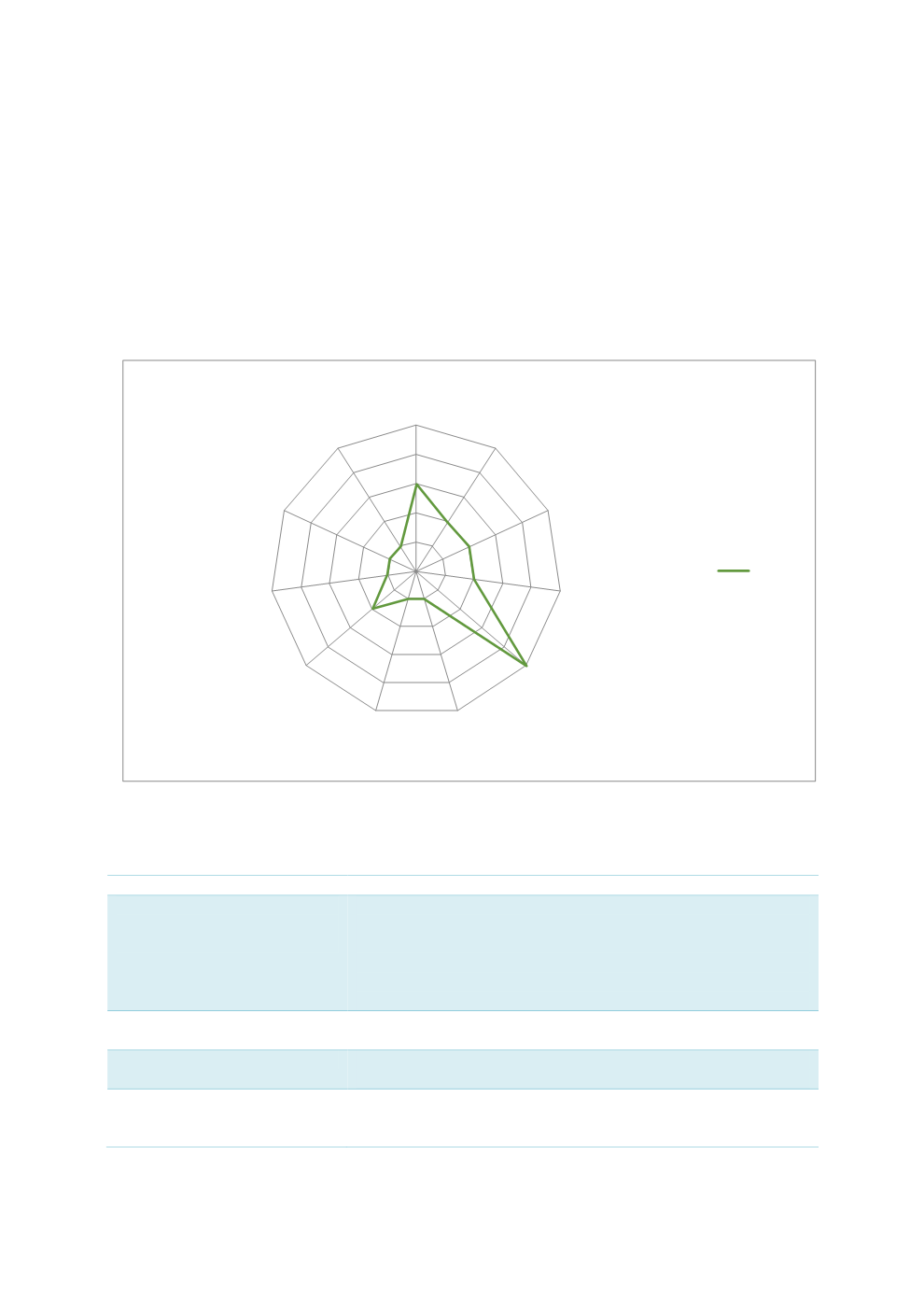

180
4.7.5
COUNTRY-SPECIFIC RECOMMENDATIONS
Nigeria shows a keen interest in developing its sukuk market. Nonetheless, it still faces a
number of challenges in the process, as reflected in Chart 4.61. Tables 4.37 and 4.38
summarise some of the proposals to facilitate the depth and breadth of Nigeria’s sukuk market
in terms of supply and demand. Table 4.39 provides some recommendations on improving the
country’s infrastructure.
Chart 4.61: Factors Influencing the Development of Nigeria’s Sukuk Market
0
1
2
3
4
5
Legal framework &
dispute resolution
Regulatory
framework
Shariah governance
framework
Tax incentives
Tax neutrality
Product innovation
Infrastructure
Diversification of
investor base
Diversification of
issuer
Cost
competitiveness
Benchmark yield
curve
Nigeria
Sources: RAM, ISRA
Table 4.37: Recommendations to Improve Supply (Sell Side) – Medium-Term Solutions
Issues and Challenges
Recommendations
Lack of short-term, non-
interest liquidity
instruments
Apart from its existing sovereign sukuk, the CBN plans to issue
sovereign sukuk to Islamic banks for their liquidity management.
The CBN will consider amending the Central Bank Act (CBA) and
Banks and Other Financial Institutions Act (BOFIA) to
accommodate the use of CBN assets to create non-interest
liquidity instruments.
Shortage of state sukuk
State governors should be encouraged to access the NICM
through sukuk issuance.
No corporate sukuk
GLCs must spearhead the issuance of corporate sukuk. This will
set a benchmark for private issuers.
No supranational sukuk
The SEC to engage the Islamic Development Bank (IDB), the
AFDB and other multilateral institutions to issue supranational
sukuk in Nigeria.
















